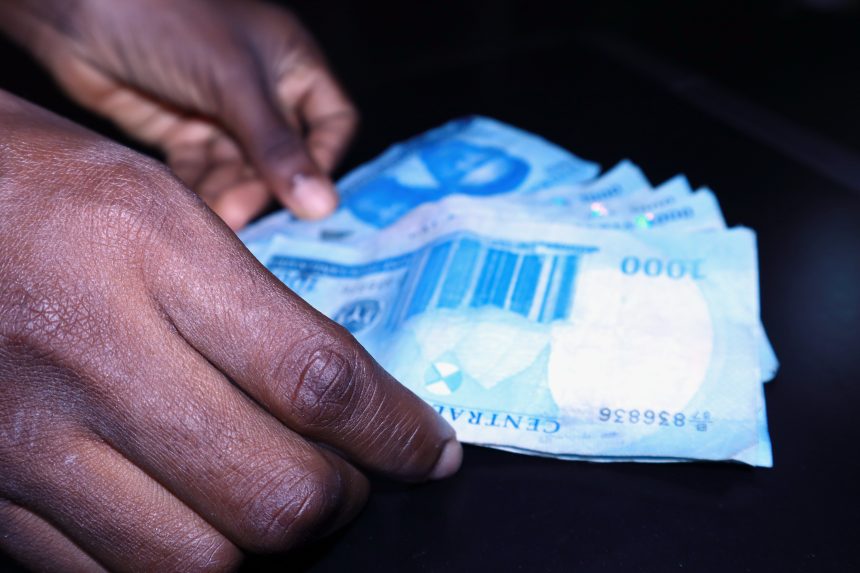For over 30 years, the value of Nigeria’s currency, the Naira, was tied to the US dollar at a fixed exchange rate. However, in June 2023 the Central Bank of Nigeria moved the nation to a more flexible, market-determined exchange rate by abandoning this peg. Now the naira floats freely based on supply and demand in the foreign exchange market. This change to a “floating Naira” raises important implications for how startups do business in Nigeria.
What is a Floating Exchange Rate?
In a floating exchange rate regime, the value of a currency is determined by foreign exchange markets rather than being fixed by a central bank against another currency like the dollar. This gives market forces more control over the price of the currency. It is a more flexible system that allows central banks to focus on domestic economic goals rather than maintaining a fixed rate. By contrast, a currency peg restricts monetary policy autonomy to control variables like inflation and interest rates. Nigeria opted for a float to gain more flexibility as low oil prices put pressure on its fixed exchange rate policy.
An exchange rate of ₦471 would translate to ₦117,750,000. With the floated rate, it could be anything between ₦192,500,000 and ₦205,000,000.
Impact on Startup Costs
One initial impact is that imports will become costlier for Nigerian startups. If the naira weakens against import-reliant currencies like the dollar or euro, then products, software, technologies and machinery bought from abroad will be more expensive in naira terms. This raises operating expenses for import-dependent startups. Overseas services may also see price hikes passed on in local currency. However, exports become relatively cheaper which can boost sales for startups targeting foreign markets.
Also worthy of note, is the fact that revenue targets now appear difficult to meet. Let’s say a startup earning in Naira had a $250,000 target to meet by year-end. An exchange rate of ₦471 would translate to ₦117,750,000. With the floated rate, it could be anything between ₦192,500,000 and ₦205,000,000. Add inflationary pressures and increased cost of cloud services and it paints a grim picture.
What can startups do? I would advise either or both of these nifty hacks.
Income smoothing
It describes a perfectly legal way of reducing fluctuations in earnings such that revenue figures tell the exact story that you wish them to tell. I know, it sounds a little shady, but it is perfectly legal. You can read more about it here.
The float opens opportunities for FinTech startups focused on solutions that help manage currency risk. Examples include online international payment systems, exchange rate tracking applications, and digital currency hedging/trading platforms
With income smoothing, you can interpret the fluctuations in a way that looks good to potential investors.
This doesn’t solve all your problems but it ensures the problems don’t lead to more problems.
Report earnings in Naira
It’s about time startups began reporting earnings in Naira. The Naira is no longer pegged to the dollar, so it doesn’t even make sense to keep reporting revenue figures in dollars (except of course, you earn in dollars).
The International Financial Reporting Standards (IFRS) recommends that companies report their earnings in the currency of their primary country of operation.
1. Access to Foreign Investment
The float may strengthen Nigeria’s attractiveness to global investors. With less currency risk arising from Naira uncertainty, startups may find it less difficult to secure foreign funding as returns become more predictable. Over time, this could see increased foreign direct investment in Nigerian tech firms. Multinational venture capital funds may become more comfortable investing in the local startup scene as exchange rate volatility is increased.
While short-term adjustments pose difficulties, the floating naira yields benefits for Nigeria’s economic development and startup potential in the long run.
As a founder, it’s crucial to create mechanisms of earning in dollars. And if you cannot, then at least save in dollars when you incorporate a US entity.
2. Challenges of Fluctuation
Even with a float, currency values will still fluctuate day-to-day creating uncertainty. Large naira swings make accurate forecasting of costs, revenues, and profits challenging for startups. Financial skills are needed to hedge exchange risks through options or future contracts. Budgeting also requires constant currency adjustments. Access to affordable hedging tools is limited, placing pressure on less sophisticated startups.
3. Opportunities for FinTech
The float opens opportunities for FinTech startups focused on solutions that help manage currency risk. Examples include online international payment systems, exchange rate tracking applications, and digital currency hedging/trading platforms. If developed affordably, these tools could empower smaller firms to participate more in global trade and investment through foreign exchange risk management.
4. Long-Term Gains
While short-term adjustments pose difficulties, the floating naira yields benefits for Nigeria’s economic development and startup potential in the long run. Digital exports face less impediment, import costs stabilize, and access to global risk capital improves. With time, these factors can stimulate tech innovation and entrepreneurship across numerous industries. The float establishes a foundation for future economic vibrancy, despite the present turbulence faced while adapting to currency flexibility. With smart risk management, Nigerian startups stand ready to leverage new advantages under this monetary policy shift.
Final Thoughts
In conclusion, the floating naira regime creates both challenges and opportunities for startups to navigate. While costs may rise initially, access to overseas markets and investment expands over the long term. Success will go to those startups able to plan effectively amidst exchange rate fluctuations through hedging, budget adaptation, and financial discipline.
Catch up on news and other tidbits on our WhatsApp Community Page, Twitter/X, and subscribe to our weekly newsletter to ensure you don’t miss out on any news.










